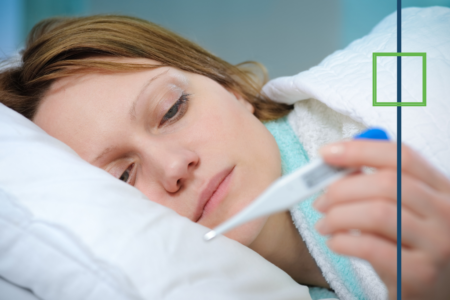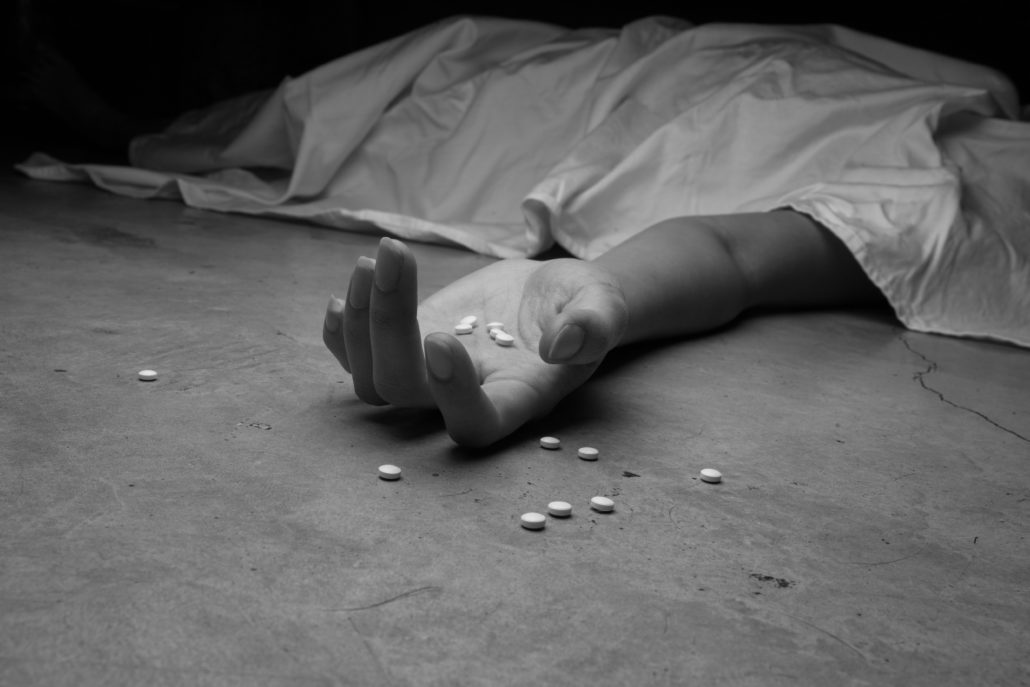What is a PCP drug?
PCP drug (phencyclidine) is a hallucinogenic substance that affects the brain in various ways. It was developed in the 1950s as an intravenous anesthetic, but its use for humans was discontinued because it caused patients to become agitated, delusional, and irrational. Today individuals abuse PCP because of the mind-altering, hallucinogenic effects it produces.
According to the US Drug Enforcement Agency (DEA) [1], PCP is illegal. PCP Drug is a Schedule II substance under the Controlled Substances Act. Schedule II drugs, which include cocaine and methamphetamine, have a high potential for abuse. Given that, abuse of these drugs may lead to severe psychological or physical dependence.
Individuals of all ages use PCP. According to DEA [2], An estimated 6 million US residents aged 12 and older used PCP at least once in their lifetime. The report also revealed that many teenagers and young adults use PCP, around 225,000 individuals aged 12 to 17 and 777,000 individuals aged 18 to 25 used the drug at least once.
Street Terms for PCP Drug
- Angel Dust
- Animal Tranquilizer
- Embalming Fluid
- Ozone
- Rocket Fuel
- Wack

Risk Factors in Using PCP Drug
- PCP is an addictive drug because its use often results in psychological dependence, craving, and compulsive behavior. In addition, PCP produces unpleasant psychological effects, and users often become violent or suicidal.
- PCP poses particular risks for young people. Even moderate use of the drug can negatively affect the hormones associated with average growth and development. Moreover, PCP use can impede the learning process in teenagers.
- High doses of PCP can cause seizures, coma, and even death (often because of accidental injury or suicide while under the drug’s effects). And then, at high doses, PCP’s effects may resemble the symptoms associated with schizophrenia, including delusions and paranoia.
- Long-term use of PCP can lead to memory loss, difficulty with speech or thought depression, and weight loss. Unfortunately, these problems can persist for up to a year after an individual has stopped using PCP.
Symptoms of PCP Drug Addiction
Many believe PCP to be one of the most dangerous drugs of abuse. A moderate amount of PCP often causes users to feel detached, distant, and estranged from their surroundings. Because of the altered states of consciousness, many can become dependent on the drug. Furthermore, PCP has sedative effects, and interactions with other central nervous system depressants, such as alcohol and benzodiazepines, can lead to coma or accidental overdose. Consequently, many PCP users are brought to emergency rooms because of PCP’s unpleasant psychological effects or because of overdoses.
Someone may use PCP and become aggressive, while someone else may become overly empathetic or anxious. A blank stare, rapid and involuntary eye movements and an exaggerated gait are among the more observable effects. It may include acute anxiety and a feeling of impending doom, paranoia, violent hostility, a psychosis indistinguishable from schizophrenia. Additionally, the common symptoms of PCP drug addiction may include:

- Delusions
- Confusion
- Hallucinations
- Euphoria
- Exaggerated Strength
- Increased Heart Rate
- Numbness
- Increased Blood Pressure
- Feelings of Detachment
- Rapid Respiration Rate
- Memory Loss
- Physical and Psychological Distress
- Anxiety
- Paranoia
- Seizures
- Chills
- Muscle Cramps
- Vomiting
- Death
- Rhabdomyolysis
- Dehydration
- Loss of Coordination
- Disorientation
- Extreme Fear or Panic
- Invulnerability
- Aggression
Signs of PCP Drug Addiction
For that actively using PCP, signs of dependence may include:
- An increased need for frequency or amount of PCP to achieve the desired effect
- Unsuccessful attempts to decrease or eliminate use
- Inability to maintain daily life expectations such as a job or family obligations
- Using PCP in situations that are hazardous, like driving
- Development of tolerance (needing more and more to induce the same effects)
PCP Withdrawal
Once someone becomes dependent on or addicted to PCP and then suddenly stops, they will endure painful withdrawal symptoms. Consequently, people suffering from PCP use disorders suffer confusion, increased appetite, depression, and increased cravings for the substance. Psychotic symptoms like paranoia can also develop and be difficult to stop. That is why treatment is essential in curbing cravings and side effects. People struggling should consider inpatient treatment because it provides a safe environment in which to heal and be supervised. Most importantly, there are medications people in rehab have access to which make withdrawal less uncomfortable.
PCP Drug Overdose

PCP effects can begin within five minutes after first use. After that, it can take a bit longer, but its impact will take hold within just an hour or so. While the effects may have a rapid onset, they are known to last for several hours. And, if the dose is high enough, the results can last upwards of two days. Thus, an overdose on this drug is potentially life-threatening.
Large PCP doses bring powerful dissociation because this can range from mood swings to suicidal behavior or paranoia to outright insanity. Not only does the person no longer act like themselves, but they no longer have a concept of self.
Symptoms of PCP Overdose
- Agitation (overly excited, violent behavior)
- Altered state of consciousness
- Catatonic trance (the person does not talk, move, or react)
- Coma
- Convulsions
- Hallucinations
- High blood pressure
- Side-to-side eye movements
- Psychosis (loss of contact with reality)
- Uncontrolled movement
- Lack of coordination
PCP Drug Addiction Treatment
The first step in treating PCP drug withdrawal is to do a detox from the substance. During detox, individuals slowly taper off their dose over the course of time until they are no longer dependent on the substance. Some withdrawal treatment programs may also provide less powerful and longer-acting medications for individuals with severe PCP drug addiction. It can help reduce withdrawal symptoms and make the detox process more comfortable. It is also safer to detox within a medically assisted facility with treatment experts because doctors can monitor the client during detox and intervene if any of the withdrawal symptoms become life-threatening.
Once detox is complete, treatment usually continues in an inpatient setting, depending on the individual’s needs. Treatment in an inpatient will give the client their best chance at a successful recovery. In addition, these programs can help with the detox process, making it both safer and more comfortable. They’ll also teach the skills necessary to remain sober during recovery.
To ensure the success of individuals seeking recovery at We Level Up, we provide the safest medication-assisted treatment to those who are good candidates, and we ensure close medical observation throughout the length of treatment. We also offer an array of alternative therapies to assist those that are not good candidates or opt-out of MAT.
Find the Right Mental Health Treatment Plan with Secondary Addiction Diagnosis
The inpatient treatment approach works best as it aims to change the person’s behaviors. Also, it helps them establish social support systems and better methods of coping with stress.
A person will likely experience many different side effects from their drug use. These side effects may be emotional, physical, or mental. For example, someone in withdrawal will likely experience many uncomfortable feelings and negative thoughts about life during the process of detox. Unfortunately, for those with dependency, detox is an unavoidable first treatment step for PCP drug Addiction.
Most importantly, do not try to detox on your own because the detox process can be painful and difficult without medical assistance. That is why getting through the detox process is crucial for continued treatment. So, reclaim your life, call us to speak with one of our treatment specialists. Our counselors know what you are going through and will answer any of your questions.
Inpatient medical detox and residential primary addiction treatment may be available at our affiliated facility at Level Up West Palm Beach Rehab. For some primary behavioral health treatment clients, medical detox and or addiction rehab may be required first. If you have a co-occurring severe substance abuse diagnosis, please contact us prior to beginning inpatient mental health therapy. Treatment services may vary. Please call us to learn which treatment options are most suited for your individual needs.
Sources
[1][2]DEA – https://www.justice.gov/archive/ndic/pubs4/4440/index.htm#illegal
[3] PCP Drug Addiction » Drug Alcohol Addiction Rehab – We Level Up